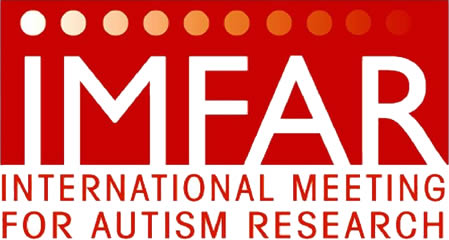News and Notes from The Johnson Center
Research Update: IMFAR 2012
JCCHD | Tue, May 22, 2012 | [Events][News][Research]
The 11th Annual International Meeting for Autism Research (IMFAR) was held this past week in Toronto, Canada. The overall theme of the conference was “looking ahead to the next decade of autism research.” Keynote speakers addressed topics such as the role of oxytocin in human affiliation (Dr. Ruth Feldman), the genetic basis of neurodevelopmental disorders (Dr. Bernie Devlin), and structural network modeling of the brain (Dr. Alan Evans).
Perhaps the most interesting and significant inclusion in the program this year was over 50 oral and poster presentations on Comorbid Medical Conditions. Many of these presentations discussed feeding difficulties, nutrient intake, food selectivity, bone mineral density, and gastrointestinal distress in ASD. (We were very happy to see so many research groups focusing on nutrition in autism.)
Dr. Laura Hewitson, Research Director at The Johnson Center, presented one of our studies “Parenting Stress and Aberrant Behavior in Children with Autism Participating in a Multi-Disciplinary Program Providing Medical Care, Dietetic Support, Educational Assessment and Family Resources.” Our analysis included families enrolled in the Bright Eyes Program, and measured parenting stress and aberrant behavior in children over time. Our data reported that at the beginning of the study, maternal stress was primarily associated with the child’s lack of adaptability and demandingness, as well as the mother’s acceptance of her child’s diagnosis (i.e., mothers of particularly demanding children and mothers who were struggling to accept their child’s diagnosis were the most stressed). Stress was significantly reduced four months after their child enrolled in the study and started intervention (interventions included dietetic analysis and support, an oral health screening, medical care, education evaluation, and weekly check-in calls with a Family Care Coordinator to monitor implementation and troubleshoot any obstacles). PDDBI scores, an indicator of child aberrant behaviors, indicated a significant reduction in sensory seeking-type behaviors and hyperactivity and hypoactivity over time. In other words, a comprehensive treatment program and considerable family support resulted in a significant reduction in children’s aberrant behaviors and therefore a reduction in maternal stress.
Our results highlight the importance of developing and providing additional supports for parents of children with autism to help them manage both the significant demands and the increased stress levels associated with this role. The study also provides intriguing preliminary data concerning the ability of this program to significantly reduce sensory behaviors and hyperactivity in children with autism within a few months of starting intervention. (The Johnson Center continues to offer grant and support opportunities for families. Further information on these programs available .(JavaScript must be enabled to view this email address)).
It was so encouraging to see such a variety of evidenced-based, medical and clinical intervention studies being presented at IMFAR. These, and other studies, certainly provided a glimpse into the next decade of autism research. The 13th Annual IMFAR Meeting will be held May 2-4, 2013 in San Sebastian, Spain.



